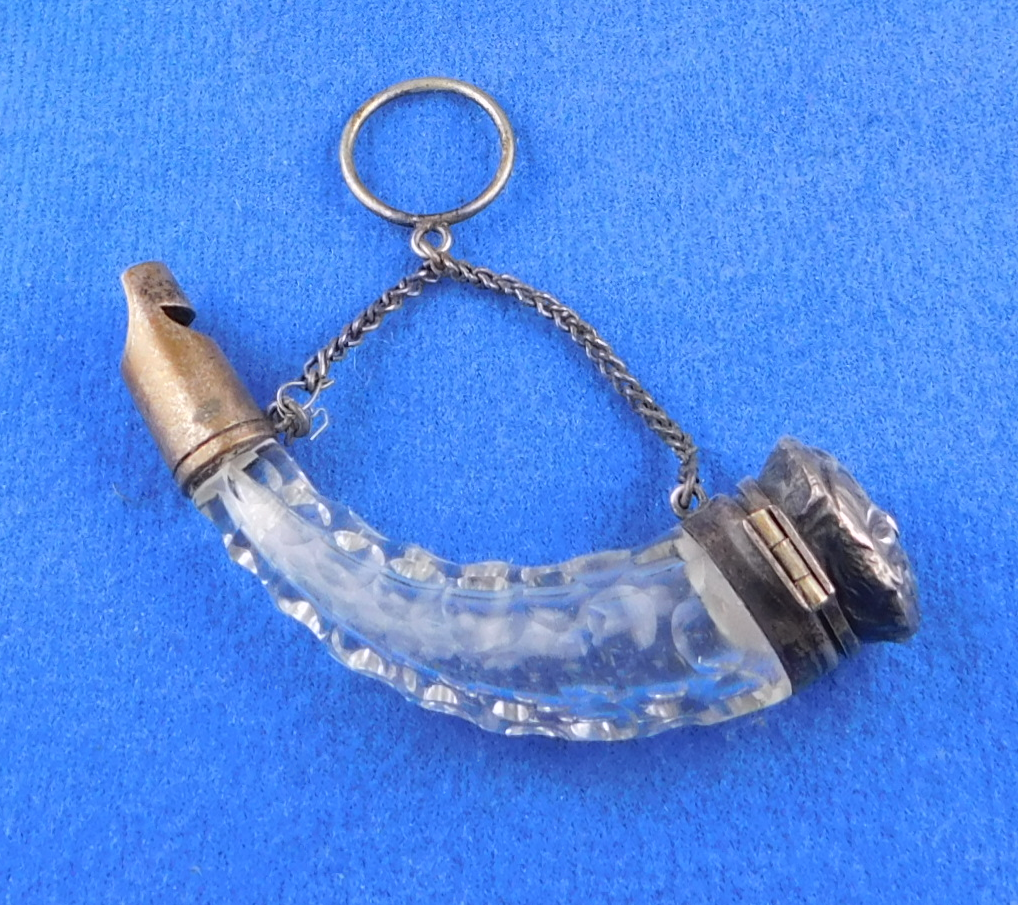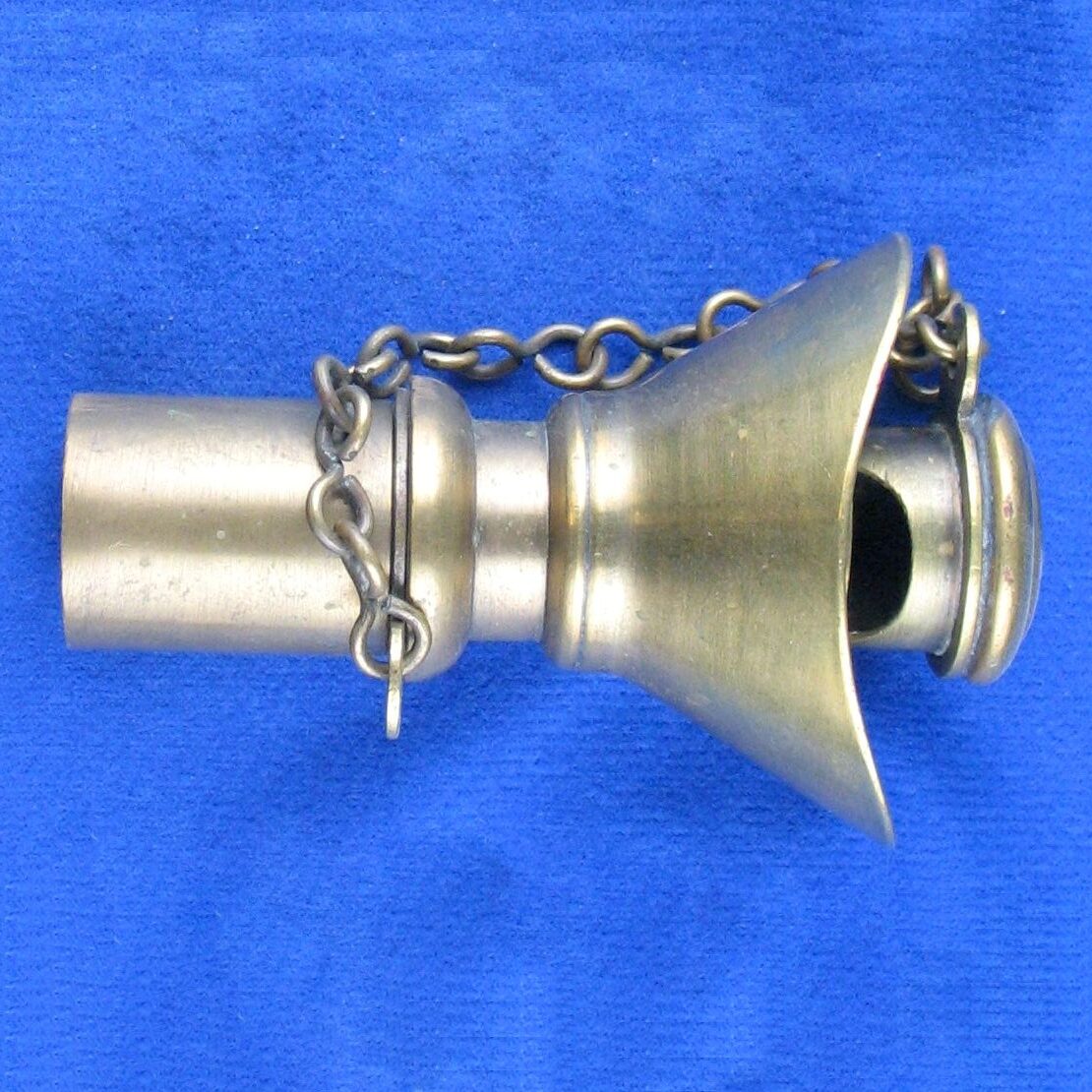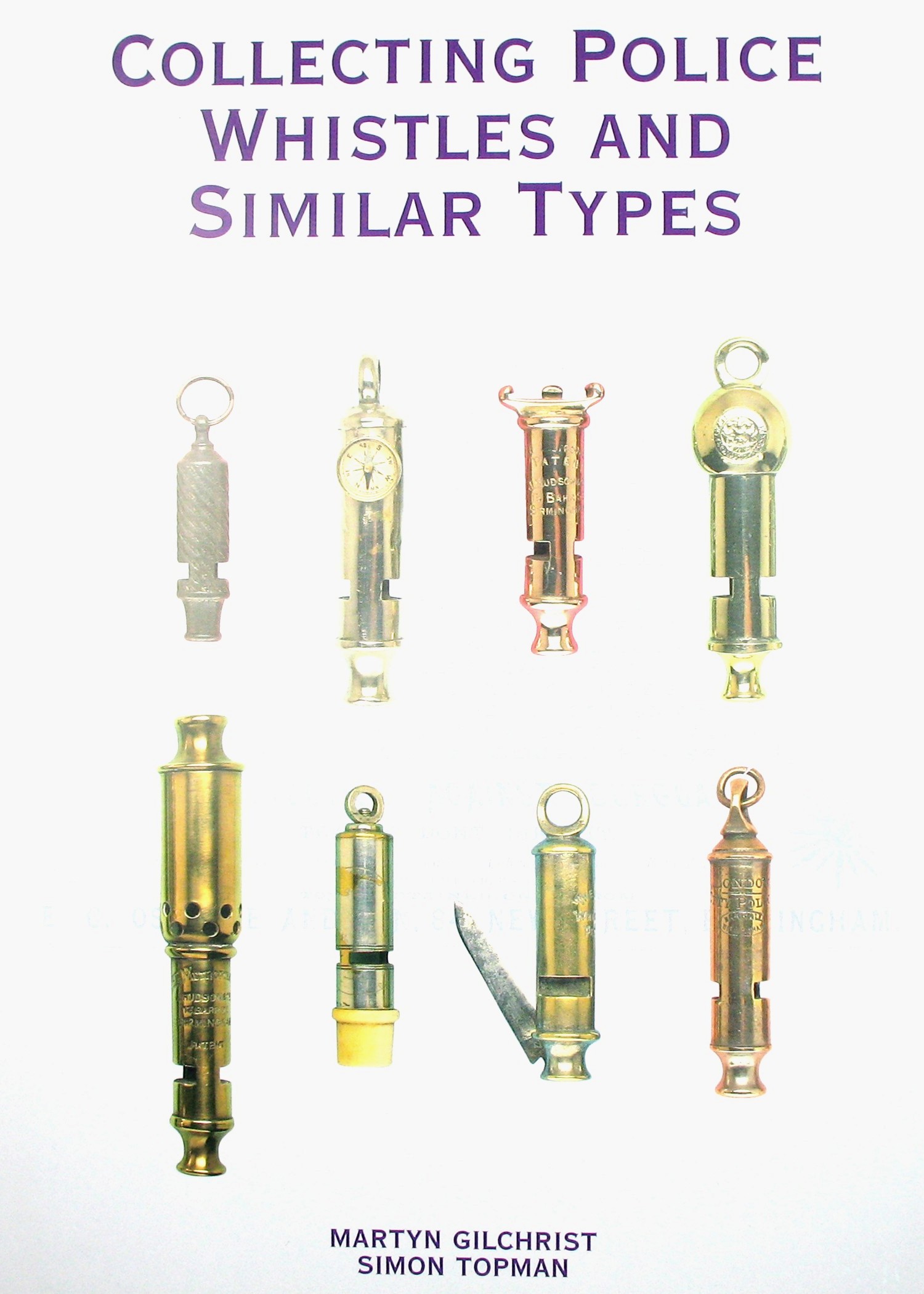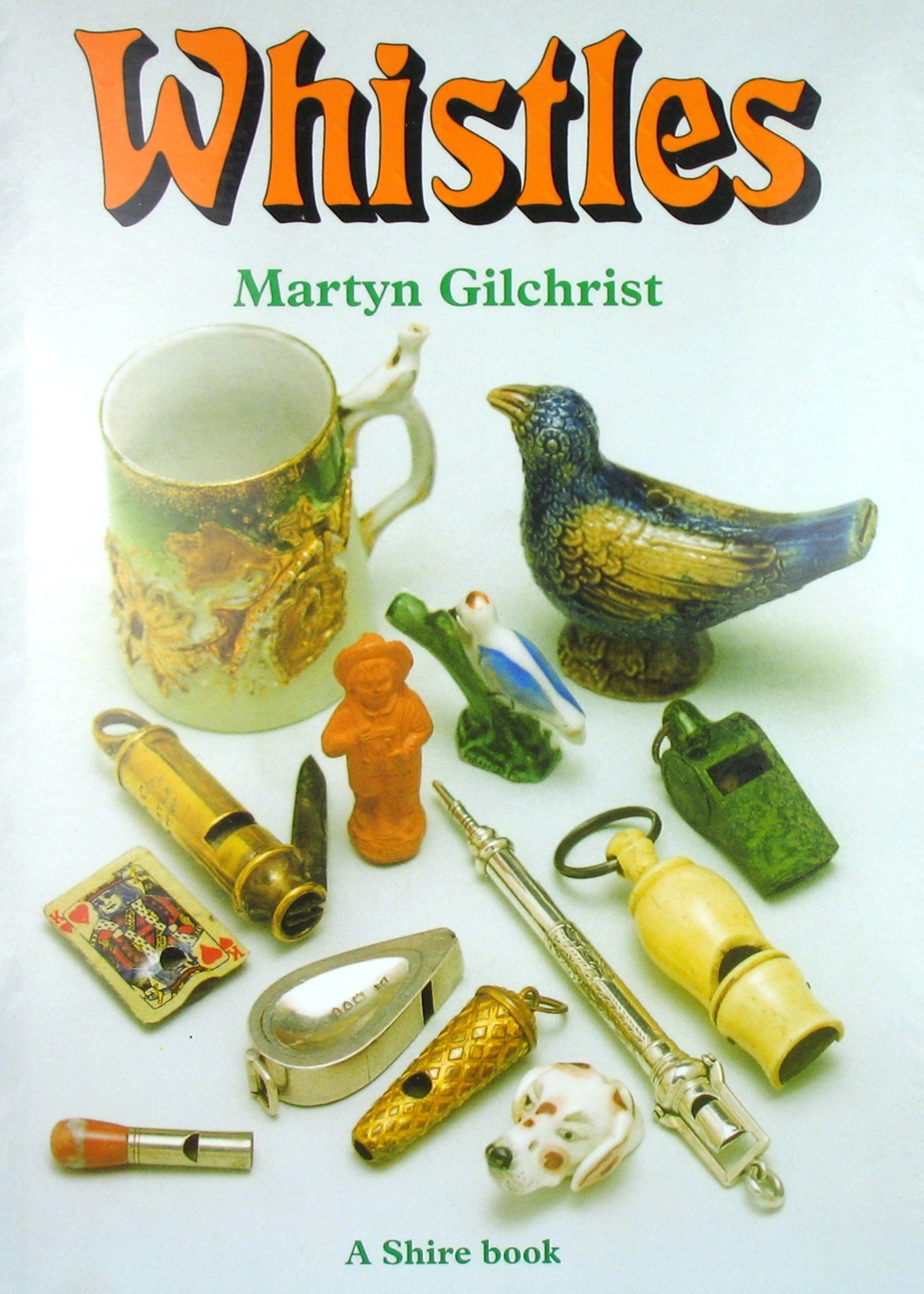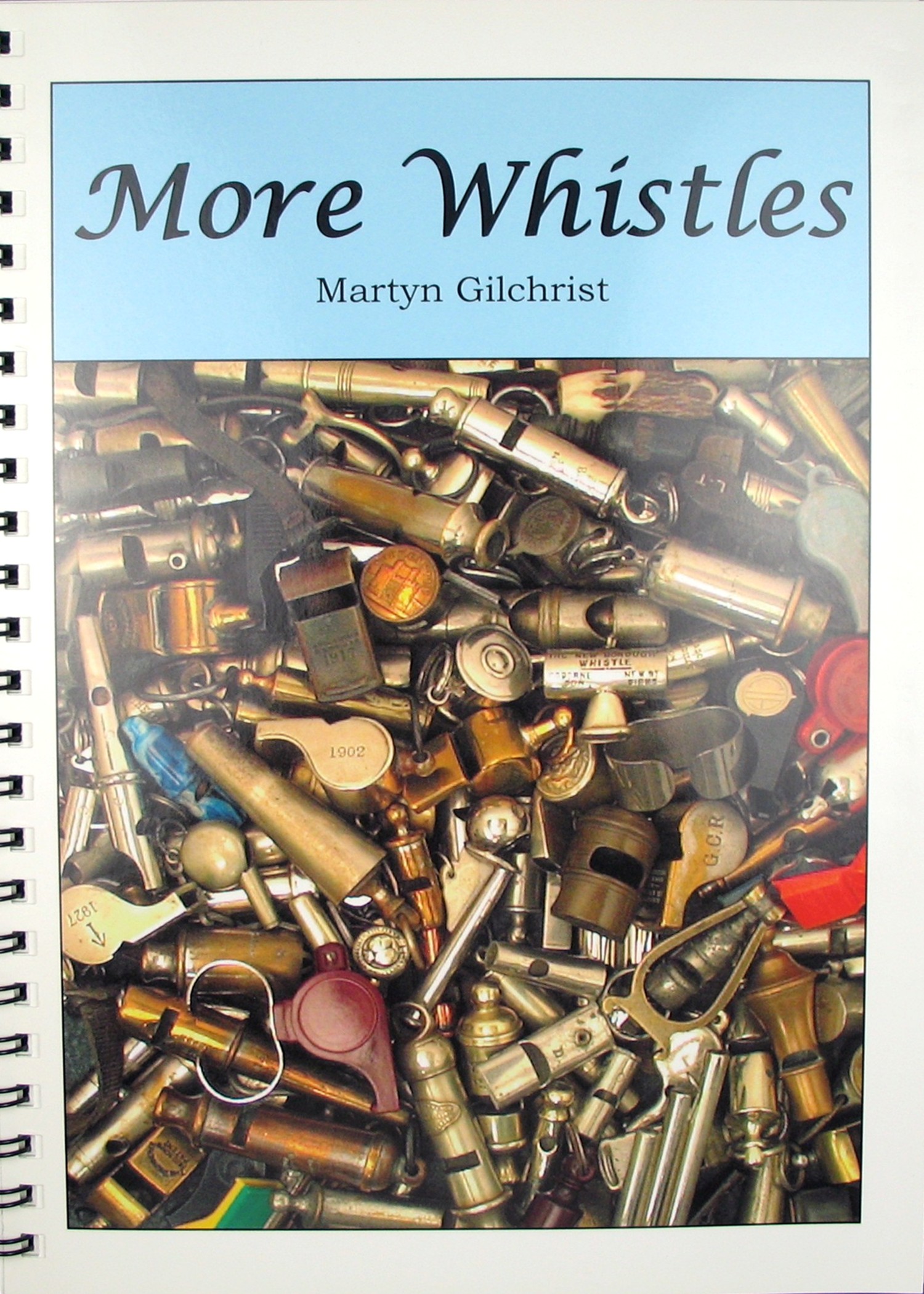Spotlight > Research Articles > 005 How to Research Whistles
Whistory
To really help in your research about whistles, here is a SPOTLIGHT devoted to where to go and what to do. There is a lot of digging involved, but the more whistle archeology, the more will be scanned, posted, shared and be able to be located in the worldwide data base of the internet.
Why is it important to know how to research the whistle?
It is all too easy to spend wasteful time spinning one’s wheels in research. A jump start in what to expect and what to do will only benefit all involved.
Motivation is made stronger through good communication
Ironically sharing does not mean you will end up with less, but will accelerate your knowledge and eventually mean more for everyone. This is sharing versus hoarding which is much more satisfying.
Whistle Classifications
To assist with the study of whistles, a format has developed on classifying whistles as follows:
| Category | Type of Whistle |
| Order | Maker, distributor, or designer |
| Type | Use (i.e., railway, police, etc) |
| Class | Material |
| Subclass | Specific construction |
Whistle Archeology
To start with we are discussing metal only, but others come into the picture.
- BOOKS
- CATALOGUES
- INTERNET
- PATENTS
- ADVERTISEMENTS
- COLLECTORS
- AUCTION SITES
- PICTURES
- HOME FILES
Whistology
Research Books
The best place to start is to have BOOKS. There are three written by Martyn Gilchrist, mainly concentrating on UK whistles. ( All are out of print at this time ).
One also by James Dundas: Collecting Whistles from the USA
One by Bailey and Owen: Whistle Makers, Made in the UK
1) Collecting Police Whistles and Similar Types by Martyn Gilchrist and Simon Topman. Hardbound. This is a comprehensive reference work. Features include:
- Life size pictures and plenty of them
- Histories of manufacturers
- A standard of classifying is set with rankings of MP1 – 24 = Metropolitan Police (with allowance for variations)
- Comprehensive lists of stamps taken from Hudson records and individual collectors — of each manufacturer
- Lists of patents and registrations
- Drawings of components for identifying the makers
- Comments next to the pictures that actually doubles the information from the main text
Although this book concentrates on London Metropolitan Police whistles it accomplishes two things: it identifies accurately the timing of production which helps set a time line to compare with; it differentiates POLICE WHISTLES from General Service Whistles ( GSWs ) and other types of whistles. Accompanying this are many introductions to other manufacturers of the same time period from the UK.
2) More Whistles by Martyn Gilchrist steps away from concentrating on police and other tube shaped whistles and brings into focus several categories such as the following:
- escargot ( snail shaped )
- beauforts ( conical shaped )
- tube ( shaped ) in general
- varietal
- sirens
- extractors
3) Whistles by Martyn Gilchrist is an introductory ‘booklet’ with some obscure pix not repeated — well worth getting and studying. This inexpensive one is still available online at Amazon and other book outlets.
There are other booklets to research, but the pages are few in each. Then there are reference police books, collectors’ books, fire brigade books, books with lists, railway and others like how many asylums there were in the UK etc. One needs to build a library.
Catalogues
Another tremendous help is to find OLD TRADE CATALOGUES by the original dealers. These would be printed for the original manufacturer OR the retailer that sold for them. They help in tracking down different models ( and model numbers ), helping with creating a history of the whistle maker, as well as location of business addresses and varieties, sizes, and materials. For example:
A) Walton catalog of c.1901 (only made whistles for 6 years). This catalogue is known to exist &
would have whistles that he was currently making, along with model numbers. When it surfaces it can be added to your fund of records along with all your other catalogs.
Internet Research
Third is the internet
Websites devoted to vintage whistles
Facebook pages of collectors
Blogs also focusing on whistles
Websites devoted to histories of manufacturers, dates, logos
auction sites with whistle descriptions
Search engines
Patent Searches
An outstanding source of real time information is to go to patent searches and look for whistle patents and registrations.
We have searched through many times, taking personal copies and studying for details. There is a wealth of information only keys away.
Unfortunately, European research and especially UK research by this method is still quite arduous. Perhaps in the future this will change. There is much there to be shared about patents and registrations.
Research Advertisements
In addition to catalogues there are ADVERTISEMENTS. Single or multiple pages, especially dated ones are helpful. You want to get the source of the pages which helps in the hunt for documentation.
Talk to Other Collectors
Other COLLECTORS are a fantastic source of information. Try to write when you can. Share information and exponentially things will snowball for you both. Even the newest collector may have a whistle unknown before or very rare, that they came across.
Review Auction Sites
AUCTION SITES like eBay, Etsy, etc. and others are also a source to see many more whistles than you would normally come across. Sometimes the information that the seller has found helps. However, a word of caution: some sellers will quote whatever sells the whistle. Always check for documentation before taking it as gospel. Even a reference to a website may be unsubstantiated.
Research Pictures
Keep PICTURES in a file for reference. They are all copyrighted if taken from the net or if sent to you by others, so you can’t share without permission. However, for a personal data base they are indispensable. You will be surprised how often you will refer to them, cross checking and building your own files.
Keep Home Files of Your Research
As you find, record and file everything and you will find that your own library, or HOME FILES, with become one of your research tools. Think ahead of what types of whistles there are and organize files to dump all your catalogs, advertisements, pictures ( yes, you will need files for all the different types of whistles ), research projects, notes.
Don’t forget a computer back up system for what may turn out to be years of research lost.
Conclusions
Everyone deserves a mentor when starting into a field of study. It is so easy to spend and waster time/money. This article serves to save on all fronts.
TWG
Posted December 4, 2012
Revised May 23, 2018
Revised October 10, 2020
Revised February 13, 2021
Revised December 27, 2021
Revised December 29, 2021
Revised January 30, 2022
Bibliography:
See above
